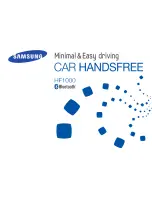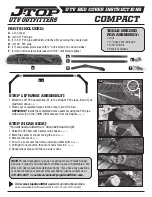
Conditions
•
Heavily loading a vehicle may reduce fuel economy at any speed.
•
Carrying unnecessary weight may reduce fuel economy (approximately
1 mpg [0.4 km/L] is lost for every 400 lb [180 kg] of weight carried).
•
Adding certain accessories to your vehicle (for example; bug
deflectors, rollbars/light bars, running boards, ski/luggage racks) may
reduce fuel economy.
•
Using fuel blended with alcohol may lower fuel economy.
•
Fuel economy may decrease with lower temperatures during the first
8–10 miles (12–16 km) of driving.
•
Driving on flat terrain offers improved fuel economy as compared to
driving on hilly terrain.
•
Transmissions give their best fuel economy when operated in the top
cruise gear and with steady pressure on the gas pedal.
•
Close windows for high speed driving.
EPA fuel economy estimates
Every new vehicle should have a sticker on the window called the
Monroney Label which contains EPA fuel economy estimates. Contact
your authorized dealer if the Monroney Label is not supplied with your
vehicle. The EPA fuel economy estimates should be your guide for the
fuel economy comparisons with other vehicles. Your fuel economy may
vary depending upon the method of operation and conditions.
EMISSION CONTROL SYSTEM
Your vehicle is equipped with various emission control components and a
catalytic converter which will enable your vehicle to comply with
applicable exhaust emission standards. To make sure that the catalytic
converter and other emission control components continue to work
properly:
•
Use only the specified fuel listed.
•
Avoid running out of fuel.
•
Do not turn off the ignition while your vehicle is moving, especially at
high speeds.
•
Have the items listed in
scheduled maintenance information
performed according to the specified schedule.
The scheduled maintenance items listed in
scheduled maintenance
information
are essential to the life and performance of your vehicle
and to its emissions system.
Maintenance and Specifications
310
2010 Fusion
(fsn)
Owners Guide, 2nd Printing
USA
(fus)
















































